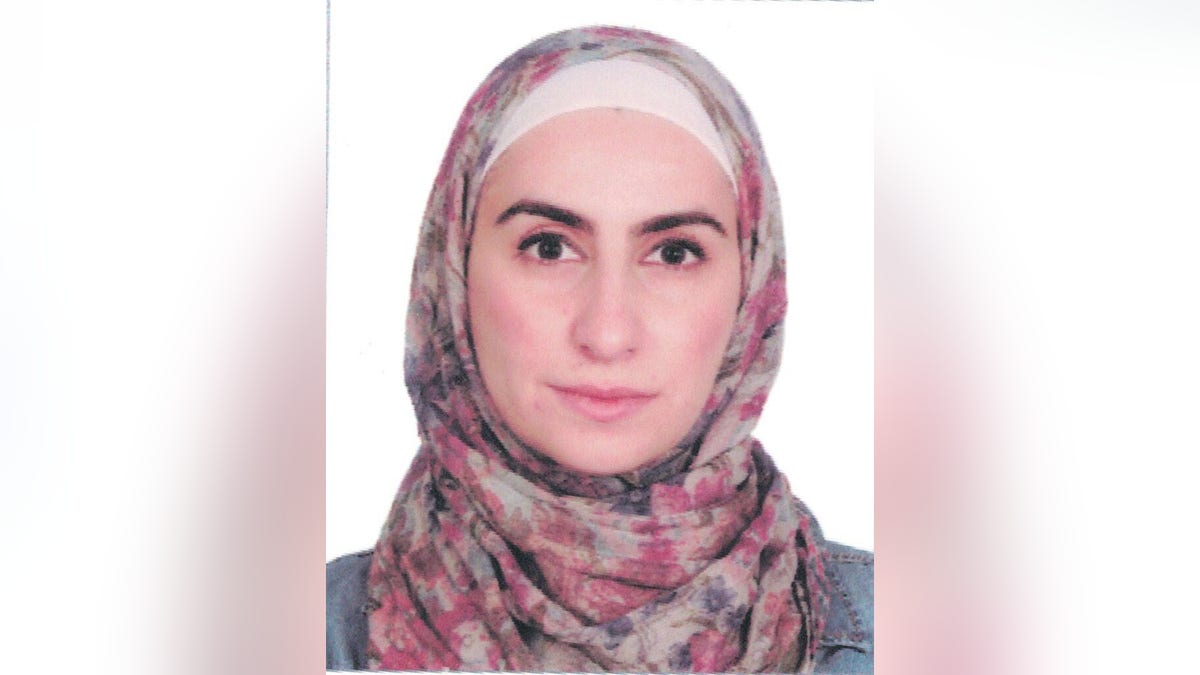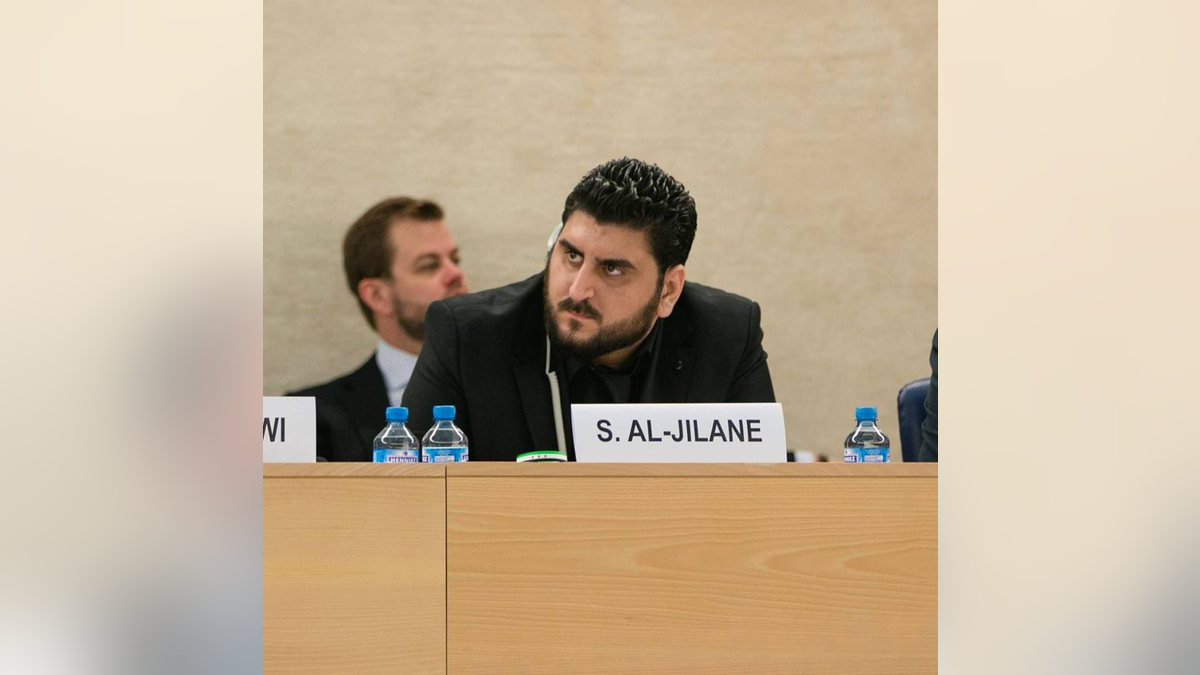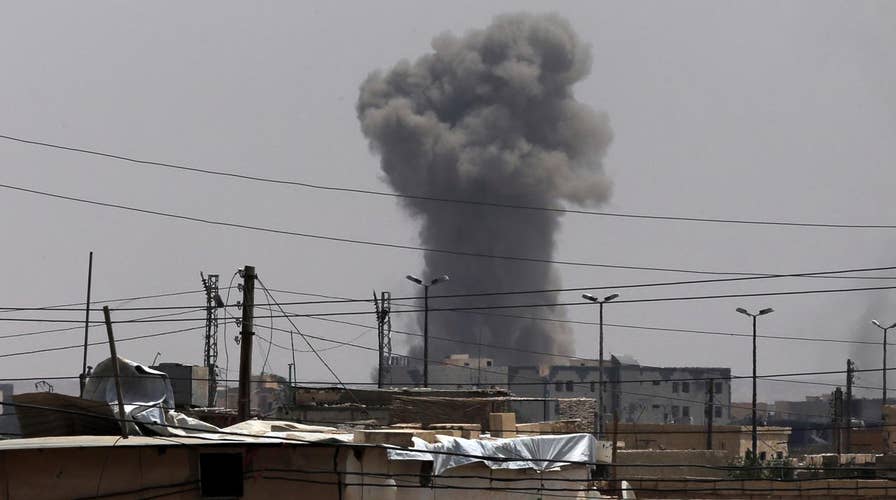US, British volunteers in battle to defeat ISIS in Syria
U.S.-backed forces captured a third of Raqqa since June; John Huddy reports from the Fox New Mideast bureau
As the bloody Syrian civil war rages on, another much more silent war engulfs the devastated country in the secret hellholes of Bashar Assad’s prisons where tens of thousands of political prisoners have endured abuse, rape and torture.
Noura Al-Jizawi, remembers how her world fell apart five years ago when she was a student at Homs University. One minute she says she was coordinating a non-violent demonstration, the next she was being hauled off to prison in a blindfold, “abducted” by Syrian intelligence operatives who held a gun to her chest.
“I just wanted to live in a country that respected me as a human; one that offered me some dignity and freedom. I could not accept that I had to live under a dictatorship,” Al-Jizawi, 32, told Fox News from southern Turkey where she is an activist. “For that, we females – even the old ladies – were tortured the same way as the men. We were hung by our feet, electric shocks, our faces beaten into walls and our skin set on fire. My teeth were all broken. I spent more than a month in solitary confinement. I just kept praying for my body to stay alive.”
Then there were the medieval torture techniques. One entailed being bound to what has long been known as the “German Chair.” A detainee’s arms and legs would be strapped to a metal chair and their bodies stretched and distorted as they were repeatedly tipped backwards toward the ground.

Noura Al-Jizawi, prominent activist detained for six months by the Syrian regime.
Al-Jizawi said she and her fellow detainees were fed twice a day -- if they were lucky. The meals consisted mostly of slops of rice riddled with hair, urine and dirty objects. She said the guards threw the food at them, leaving them to eat “like animals without plates of utensils.”
She and four other women were moved to an underground basement, their mouths taped shut. Later she learned that they were moved because the Red Cross was coming to inspect the prison. The Red Cross inspection followed an outcry from human rights groups and the United Nations.
Al-Jizawi said they had been bruised and battered and they were moved to conceal any signs they had been tortured.
Some women were raped, she said. She said the guards knew the rapes wouldn’t be reported given cultural and religious taboos in Syria. But, somewhat ironically, Al-Jizawi believes that the number of female detainees who have endured rape has been vastly exaggerated – by the Syrian government.
“This is a tool they use to instill such fear to silence young women, to ensure they stay home,” Al-Jizawi explained, noting how rape comes with such deep shame even on the survivor in their society, and threatens to destroy one’s marriage prospects for life.
Al-Jizawi said her nightmare finally ended when she was released after six months in jail. She said was forced to plead guilty to win her release. Her family has since fled to Turkey.
The Syrian regime prisons are unannounced ways to exterminate people.
Professional status offers no protection. A Syrian physician who asked only to be identified as Dr. Karam, told Fox News how he had been tortured after the Assad regime arrested him in 2011.
Karam said it was standard practice for inmates to be dragged around and clobbered with cables and bars until almost all visible flesh was black.
He said he was locked up for more than six months and spent most of that time in Syria’s most notorious prison, Saydnaya, just north of the capital Damascus.
“I was not allowed to talk or lie down,” he said to Fox News from southern Turkey. “The whole time my family didn’t know where I was, they thought I was dead.”
SYRIA CEASEFIRE BROKERED BY US, RUSSIA HOLDING, BUT WITH FLAWS, 'TRICKS' IN PLAY
DEFECTORS FROM NORTH KOREA DESCRIBE CONCENTRATION CAMP, DAILY LIFE
In May, U.S. officials accused the Assad regime of killing as many as 50 prisoners a day at Saydnaya and more than 13,000 there since the civil war began. U.S. officials said another 18,000 Saydnaya prisoners were believed to have died due to starvation and the toll of physical abuse. The State Department has accused the Syrian government of building a crematorium at the site to dispose of detainee remains and destroy evidence.

Syria prison and torture survivor Sarmad Al-Jilane.
Sarmad Al-Jilane, a 24-year-old activist, was labeled one such terrorist simply for voicing his opposition in peaceful protests.
He told Fox News that he was arrested in 2011 and the conditions in prison were “horrendous.” He said three detainees were crammed into a cell that was barely big enough for one person.
He said in the prison they were subject to systematic beatings of one’s “reproductive organs” with an electroshock weapon while a door would be slammed shut on their heads.
“I was allowed to go to the bathroom only two times a day, each of 10 seconds. After the 10 seconds end, they started to hit me,” Al-Jilane said. “The guards would force detainees to stand in a room for as long as 30 hours while throwing water at them, electrifying them, and hitting them with sharp objects, all of this without any investigation.”
He said his family, desperate to obtain his release, pulled together “a big amount of money to a businessman mediator who communicated with officers” and negotiated his release. He was imprisoned nine months and when he was released, he was forced to flee. He now lives in Germany.
The conflict, which shows no signs of resolution, is believed to have killed more than 500,000 people and displaced 11 million Syrians from their home.
“The Syrian regime prisons are unannounced ways to exterminate people,” Al-Jilane said.

